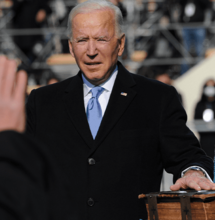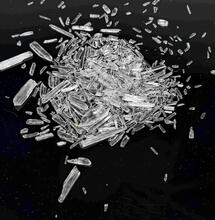Ferguson: Did Prosecutors Focus Unduly on Marijuana?

Could pot really have contributed to the deadly confrontation between Brown and Wilson?
Could pot really have contributed to the deadly confrontation between Brown and Wilson?
| Michael Brown [Credit: Getty Images] |
SOURCE: BBC News
AUTHOR: By Anthony Zurcher, Editor, Echo Chambers
With the record in the grand jury investigation now open to the public, commentators and analysts are poring over the details for explanations as to why the grand jury decided not to indict Mr Wilson for shooting Brown. The drug angle has garnered particular attention and, from some corners, criticism.
According to a toxicology report conducted by the government, Brown had 12 nanograms of tetrahydrocannabinol (THC) - an active ingredient of marijuana - in his blood when he died.
The evidence was presented to the grand jury, and assistant county prosecutor Kathi Alizadeh interviewed the county's toxicologist as to the potential implications.
He told the grand jury that tests indicated Brown had smoked marijuana "within a couple of hours" of his death and it could have had hallucinogenic effects if taken in a high enough dose.
"Technically speaking, I mean, you are not looking at pretty birds and flying snakes and so forth, but you are altering your perception of senses," he said.
Ms Alizadeh later asked if the evidence showed that Brown had a "high dose", to which the toxicologist answered:
"This was a very large individual. I think he was about 300 pounds. So for a concentration of 12 nanograms in a large person, that shows it was a large dose. In a small person, say like 100 pounds, to get to 12 nanograms wouldn't take a lot. A single joint could easily do that. But when you talk about a larger body mass, just like drinking alcohol, larger persons can drink more alcohol because they have the receptacle to hold it."
This exchange has Jacob Sullum, an editor at the libertarian Reason magazine, crying foul.
"By conflating dose with blood concentration, this exchange implies that 12 nanograms of THC per milliliter will make a large person crazier than a small person, which makes no sense," he writes. "If smoking a single joint can raise a 100-pound person's THC concentration that high, and if 100-pound people who smoke a joint do not commonly behave the way Wilson claims Brown did, why should we believe marijuana helps explain why Brown is dead?"
Sullum says that the prosecutors did everything they could to push a "pharmacological explanation" for the aggressive behaviour Wilson claims Brown exhibited in their confrontation.
While prosecutors in the case noted that 5 nanograms is the legal limit for operating motor vehicles in the two US states where pot is now legal, Sullum contends that other studies have shown that higher levels are required for impairment.
"The fact that Brown's THC level was 'over twice' this arbitrary number, as Alizadeh emphasized, does not necessarily indicate he was too stoned to drive, let alone that he had consumed enough marijuana to precipitate a psychotic break."
Vox's German Lopez also questions whether marijuana could have played a role in the Ferguson incident. He points to later grand jury testimony by Michael A Baden, a forensic pathologist hired by the Brown family.
Could marijuana have affected Brown's reactions and behaviour once he was shot, assistant prosecutor Sheila Whirley asked.
"The amount of marijuana he has could cause abnormal behaviour, but usually doesn't," Mr Baden replied.
"Ninety-nine out of 100 people taking marijuana aren't going to get in a fight with a police officer," he said.
Lopez notes that Ms Whirley then questioned Mr Baden's credentials and one of the grand jurors expressed doubt that the expert could know that marijuana wasn't the reason why Brown fought with Wilson.
"There's actually no reason to believe, based on the available research and the scientific understanding of pot, that marijuana would actually make someone more violent," Lopez writes.
"This makes sense to anyone with even a vague notion of marijuana's effects. Pot is most popularly known as a sedative that relaxes users. One of the prominent arguments against its use, in fact, is that it makes users so sedated that they're lazy and, as a result, unproductive."
When word of the positive blood test first was leaked in October, however, some marijuana critics were quick to call attention to the drug.
"Brown's death ... should serve as a tragic reminder that marijuana is not harmless, that it is not just like alcohol," Christian Thurstone, an addictions psychologist, wrote in his blog (in a post that has since been deleted), "that its consumption often leads to impairment that is very difficult for the public to measure - also making it tough for the public to hold users accountable for the harm they've caused others. Marijuana users also could be vulnerable to aggression and attacks while under the drug's influence."
Others have pointed to Brown's apparent marijuana use as indicative of his character - and the culture that he was raised in - regardless of the amount in his bloodstream.
"Did Brown's parents know who his friends were?" asks PJ Media's Bryan Preston. "Did they know about his drug use?" Do they, he goes on, know he pretended on social media to be a gang member. "Was he one of those kids born into a 'good family' that taught him well, only to reject those values? Was he taught any values at all?"
The subject of marijuana even came up during the protests and subsequent violent clashes with police following announcement of the grand jury's decision.
"Obviously there's the smell of marijuana in the air," CNN anchor Don Lemon said as he walked through the crowd of demonstrators.
His comment drew a quick and angry response from many on social media.
In the 1930s and 1940s in the US there was a common perception that marijuana could cause individuals to behave dangerously - "reefer madness", as it was referred to in a 1936 propaganda film that predicted a dark fate for those who used the drug.
Mr Baden, during his testimony, made reference to this cultural episode.
"There was this terror that it made everybody go crazy," he said. "It doesn't make people go crazy."
Now with a marijuana legalisation movement in the US taking hold, the public is once again addressing the implications of making pot use more acceptable. For advocates who have long sought to decriminalise the drug, it is a triumphant moment. For others, it is more concerning.
For now the drug resides in a legal grey area - a controlled substance on the federal level, soon to be legal in four states and illegal in the rest.
Is marijuana a contributing element in criminal activity? Is it a recreational drug on its way to societal normalisation?
The marijuana testimony in the Wilson case - and the reaction to it - indicate that these questions are nowhere near being resolved.



